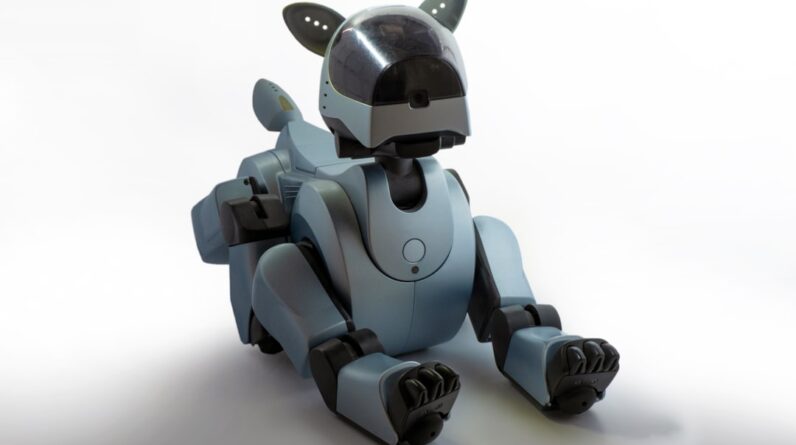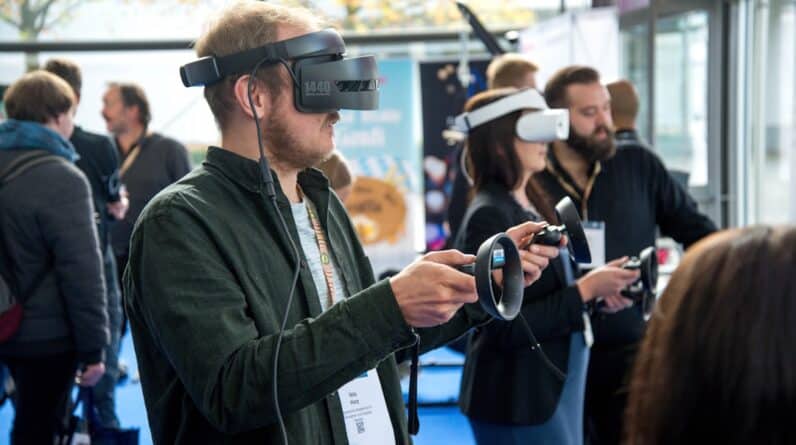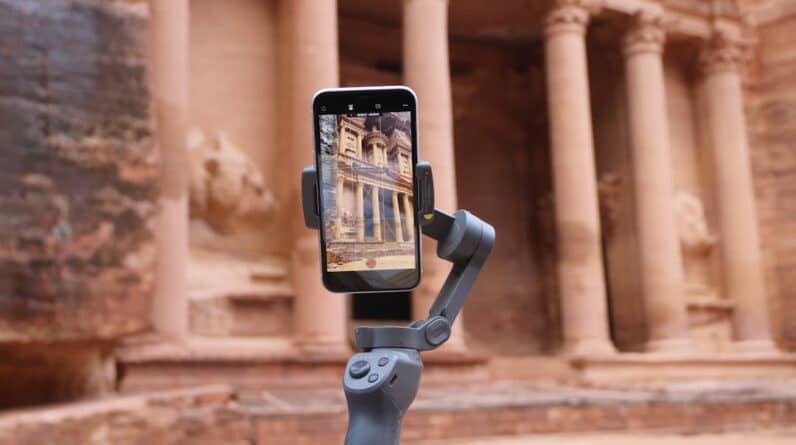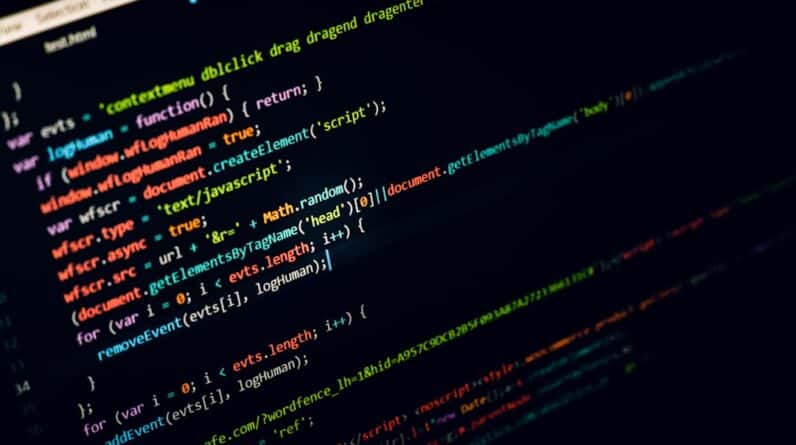As you step into the kitchen, the aroma of spices and the sizzle of ingredients create a symphony of culinary possibilities. In recent years, artificial intelligence (AI) has begun to weave its way into this age-old art, transforming how you approach cooking and meal preparation. The integration of AI into the culinary world is not merely a trend; it represents a significant shift in how you can create, innovate, and personalize your food experiences.
From recipe generation to smart kitchen appliances, AI is reshaping the landscape of cooking, making it more accessible and efficient for both amateur cooks and seasoned chefs alike. Imagine having a virtual sous-chef at your disposal, ready to assist you with everything from meal planning to cooking techniques. This is the promise of AI in cooking.
By harnessing vast amounts of data and sophisticated algorithms, AI can analyze your preferences, dietary needs, and even the ingredients you have on hand to suggest recipes that suit your taste. As you navigate this new culinary frontier, you may find that AI not only enhances your cooking skills but also inspires creativity in ways you never thought possible.
Key Takeaways
- AI in cooking is revolutionizing the way recipes are created and food is prepared, leading to innovation in the culinary world.
- AI is impacting food preparation and cooking techniques by streamlining processes and improving efficiency in the kitchen.
- Personalized nutrition and dietary restrictions are being addressed through AI, providing tailored meal plans and recipe suggestions.
- The future of AI in restaurant operations and kitchen management is promising, with potential for increased productivity and improved customer experiences.
- Ethical and cultural considerations of AI in culinary arts must be carefully examined to ensure that technology is used responsibly and respectfully.
The Role of AI in Recipe Creation and Innovation
Unlocking New Flavors and Textures
By inputting a few key ingredients, an AI system can generate unique recipes that blend various culinary traditions, allowing you to explore new tastes and textures without the guesswork. This enables you to discover new flavors and ingredients that you may not have tried before.
Personalized Recipe Suggestions
Moreover, AI can adapt recipes based on your feedback and preferences. If you find that you enjoy certain flavors or ingredients more than others, AI can learn from this data to refine its suggestions over time. This dynamic interaction not only makes cooking more enjoyable but also encourages you to experiment with new ingredients and techniques.
Discovering a Passion for Culinary Experimentation
As a result, you may discover a passion for culinary experimentation that leads to exciting new dishes and flavors in your kitchen. With AI, the possibilities are endless, and the joy of cooking is elevated to a whole new level.
The Impact of AI on Food Preparation and Cooking Techniques

AI’s influence extends beyond recipe creation; it also plays a crucial role in food preparation and cooking techniques. Smart kitchen appliances equipped with AI capabilities can guide you through the cooking process, ensuring that each step is executed flawlessly. For example, an AI-powered oven can adjust cooking times and temperatures based on the specific dish you’re preparing, taking the guesswork out of achieving perfect results every time.
This level of precision allows you to focus on creativity rather than worrying about whether your dish will turn out as intended. Additionally, AI can assist in food preparation by automating repetitive tasks. Imagine a smart food processor that can chop vegetables to your desired size or a robotic arm that can stir sauces while you attend to other aspects of your meal.
These advancements not only save you time but also reduce the physical strain associated with cooking. As you embrace these technologies, you’ll find that they enhance your overall cooking experience, allowing you to enjoy the process rather than view it as a chore.
AI in Personalized Nutrition and Dietary Restrictions
In today’s health-conscious society, personalized nutrition is more important than ever. AI has emerged as a powerful tool in tailoring dietary recommendations to meet individual needs. By analyzing your health data, preferences, and dietary restrictions, AI can create meal plans that align with your nutritional goals.
Whether you’re looking to lose weight, manage a medical condition, or simply eat healthier, AI can provide insights that help you make informed choices about what to eat. For those with dietary restrictions—such as allergies or specific lifestyle choices—AI can be particularly beneficial. By inputting your restrictions into an app or program, you can receive customized recipes that exclude harmful ingredients while still being delicious and satisfying.
This level of personalization empowers you to take control of your diet without sacrificing flavor or enjoyment. As you explore these options, you’ll likely find that eating well becomes not only easier but also more enjoyable.
The Future of AI in Restaurant Operations and Kitchen Management
As AI continues to evolve, its impact on restaurant operations and kitchen management is becoming increasingly apparent. Imagine walking into a restaurant where AI systems manage inventory levels, predict customer preferences, and optimize staff schedules based on real-time data. This level of efficiency not only enhances the dining experience for customers but also streamlines operations for restaurant owners.
By leveraging AI technology, restaurants can reduce waste, improve service speed, and ultimately increase profitability. Furthermore, AI can assist chefs in creating menus that resonate with their target audience. By analyzing customer feedback and dining trends, AI can suggest dishes that are likely to be popular among patrons.
This data-driven approach allows restaurants to stay ahead of the curve and adapt their offerings based on changing consumer preferences. As you dine out in the future, you’ll likely notice how these advancements enhance your overall experience, making dining not just a meal but an engaging culinary journey.
Ethical and Cultural Considerations of AI in Culinary Arts

While the integration of AI into cooking presents numerous benefits, it also raises important ethical and cultural considerations. As you embrace these technologies, it’s essential to reflect on how they impact traditional culinary practices and cultural heritage. The art of cooking has deep roots in cultural identity, and the introduction of AI may risk homogenizing diverse culinary traditions.
It’s crucial to strike a balance between innovation and preservation, ensuring that the unique flavors and techniques of various cultures are respected and celebrated. Moreover, there are ethical implications surrounding data privacy and security when using AI in cooking applications. As these systems collect personal information about your dietary habits and preferences, it’s vital to ensure that this data is handled responsibly.
Transparency in how data is used and stored will be key in building trust between consumers and technology providers. As you navigate this evolving landscape, consider how you can advocate for ethical practices in the culinary arts while still enjoying the benefits of AI.
Challenges and Limitations of AI in Cooking
Despite its many advantages, the integration of AI into cooking is not without challenges and limitations. One significant hurdle is the reliance on data quality; if the information fed into an AI system is flawed or biased, the resulting recommendations may be less than optimal. This underscores the importance of continuous improvement in data collection methods to ensure that AI systems provide accurate and relevant insights for users like yourself.
Additionally, there is a learning curve associated with adopting new technologies in the kitchen. While some may embrace AI with enthusiasm, others may feel overwhelmed or resistant to change. It’s essential to approach these innovations with an open mind and a willingness to learn.
As you experiment with AI tools in your cooking routine, remember that patience is key; mastering new technologies takes time and practice.
Embracing the Future of AI in Culinary Arts
As you reflect on the transformative potential of AI in cooking, it’s clear that this technology is reshaping how you approach food preparation and culinary creativity. From personalized nutrition to innovative recipe generation, AI offers exciting opportunities for enhancing your cooking experience. While challenges remain—such as ethical considerations and data quality—embracing these advancements can lead to a more enjoyable and efficient culinary journey.
The future of cooking is bright as you integrate AI into your kitchen routine. By leveraging these tools thoughtfully and responsibly, you can unlock new flavors, streamline meal preparation, and create dishes that reflect your unique tastes and dietary needs. As you embark on this journey into the world of AI-enhanced cooking, remember that technology should complement your culinary skills rather than replace them.
Embrace the possibilities ahead and enjoy the delicious adventures that await!
AI in Cooking: The Future of Culinary Arts is an exciting topic that explores how artificial intelligence is revolutionizing the way we approach food and cooking. In a related article, AI in Content Creation: Automated Writing and Design Tools, we see how AI is also being used in creative fields to streamline processes and enhance productivity. Just as AI is transforming the culinary world, it is also making waves in content creation and design, showing the vast potential of this technology in various industries.
FAQs
What is AI in cooking?
AI in cooking refers to the use of artificial intelligence technology in the culinary arts. This can include AI-powered cooking assistants, recipe generators, food recognition systems, and smart kitchen appliances.
How does AI impact the culinary arts?
AI has the potential to revolutionize the culinary arts by streamlining cooking processes, creating personalized recipes, improving food safety, and enhancing the overall dining experience. It can also help chefs and home cooks discover new flavor combinations and cooking techniques.
What are some examples of AI in cooking?
Examples of AI in cooking include smart ovens that can recognize and cook food automatically, recipe recommendation systems that suggest dishes based on dietary preferences, and food recognition apps that can identify ingredients and suggest recipes.
What are the benefits of AI in cooking?
The benefits of AI in cooking include increased efficiency in the kitchen, reduced food waste, improved accuracy in cooking, and the ability to cater to individual dietary needs and preferences. AI can also help in creating new and innovative dishes.
Are there any concerns about AI in cooking?
Some concerns about AI in cooking include potential job displacement for chefs and kitchen staff, privacy and data security issues related to smart kitchen appliances, and the need to ensure that AI systems do not compromise the creativity and artistry of cooking.






